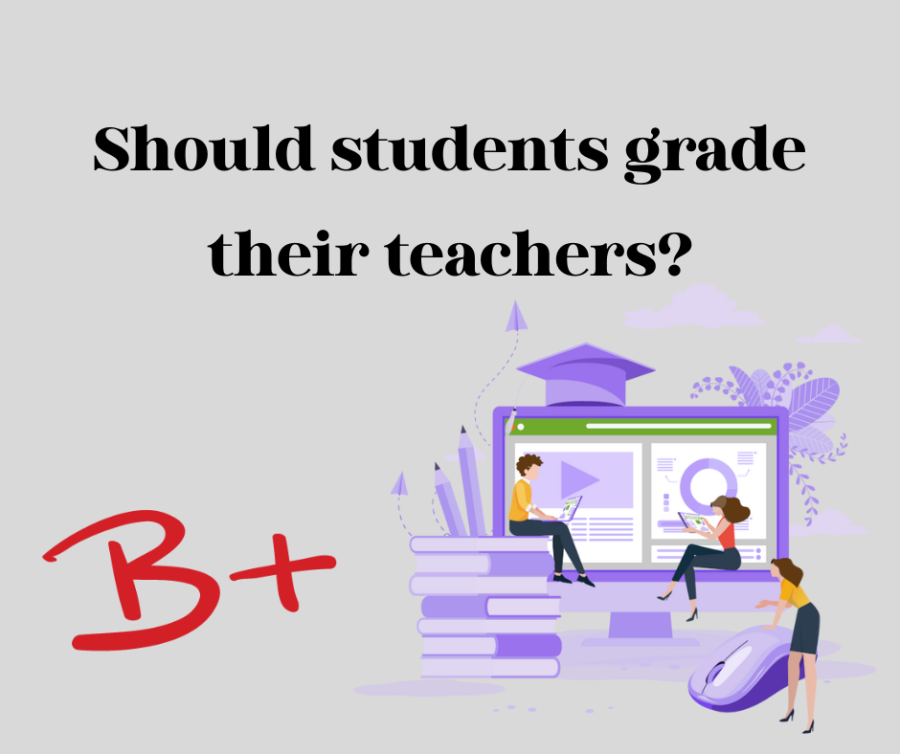Head 2 Head

If you get a bad grade or feel like a teacher is not doing enough to help you learn, it is normal to want to flip the script and give them a grade instead. But this instinct, while completely understandable, is not the solution.
Do not get me wrong. There have been multiple occasions where I wished that I had the power to grade my teacher and let them know what I was really thinking. But this is not reasonable, because I would be grading my teacher based on my personal feelings, not their ability to teach. This is something that almost all students are guilty of. At this age especially, we mostly are driven by emotion and do not focus on reason.
When grading, it would be easy to let your own personal feelings determine what grade you give a teacher, instead of focusing on how well they have helped you grow as a student.
Additionally, letting students grade teachers can easily turn the classroom into a popularity contest, not a place of learning. If teachers were graded, they might start changing who they are to become more popular among students and get higher scores. Teachers seeking approval from students almost always starts to become a problem. Actions such as these can distract students from the whole point of school–learning.
When you take the teacher’s perspective into mind, the whole idea of students getting to grade them is unreasonable. Teachers undergo extensive training to be able to teach and grade students’ work properly. It must feel incredibly unfair when someone with minimal education is able to critique you and your style of teaching.
I am not saying that informative feedback to help a teacher grow is a bad thing, because in reality, getting critique is the only way we know how to fix our mistakes and improve. What I am saying is that giving teachers a letter grade is pretty harsh, especially when we do not know all that goes into their jobs.
Teachers can grade us fairly because they were once students, too. But it is not reasonable for students to grade teachers, since we have never been in that position.
In a world where things can easily be lost in translation, providing effective feedback for others is imperative. Teachers grade students and give them feedback all the time. The same needs to be done on the other end.
When students grade teachers, this gives teachers access to positive and constructive student criticisms. While they may receive that from higher-up administration, getting feedback from students who are actively enrolled in the class will provide a more first-hand experience, as they see what their teachers do directly.
Already, at the college level, students are able to grade their professors by how well they teach and how they communicate. If students in high school or middle school were allowed to grade their teachers, it would allow other people to understand how that teacher works. It would also allow future generations to understand what they need to know about that teacher, including how strong their lesson planning is or how strong their ability to relate content to the student is.
This can also lead to more improvements, showing administration that the teacher is effectively doing their job, and improving communication and conversation. Communication and conversation in a generation where people speak through their phones is crucial to understanding curriculum content.
Some teachers may not like the thought of being graded because some students are biased. Some students may call them lazy or give them a bad grade just because they do not like their class. There are ways around that, though, to eliminate that possibility.
For one, if they have a fairly good grade in the class, it would make their opinion possibly stand out more. As well, they could only be allowed to if they meet certain requirements, like a training on what to look out for.
With how many new restrictions and regulations they put in schools, it would be important to ensure that everyone has a good learning experience and environment.
Many changes are coming down on school systems across the country. This change would allow students to voice their opinions and speak up about whether a teacher is doing right or wrong, just as a teacher would when a student fails a test.


